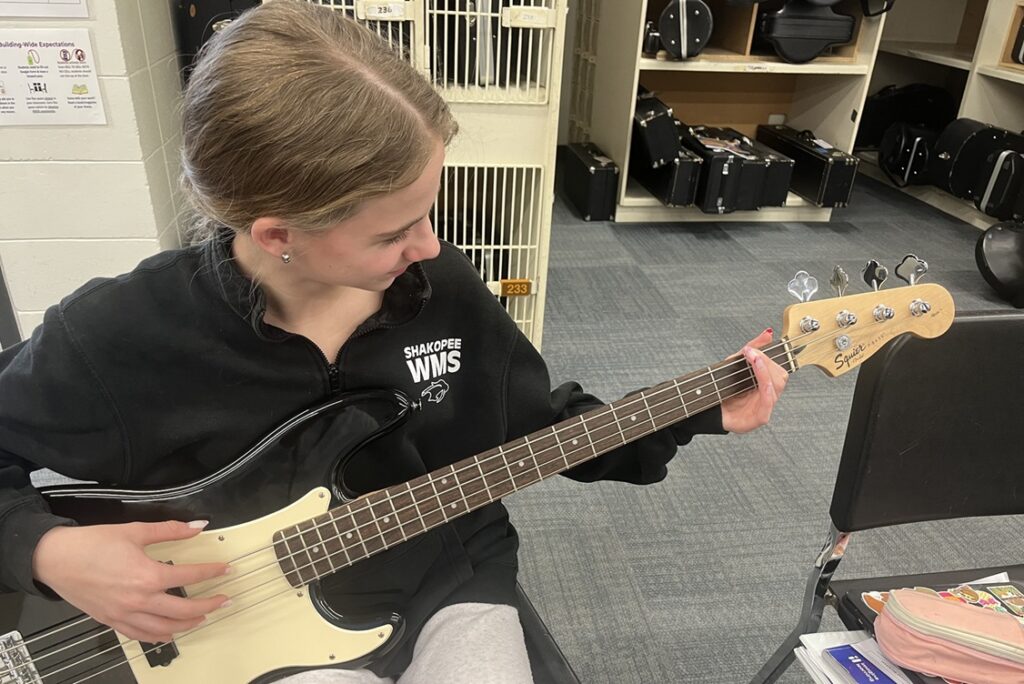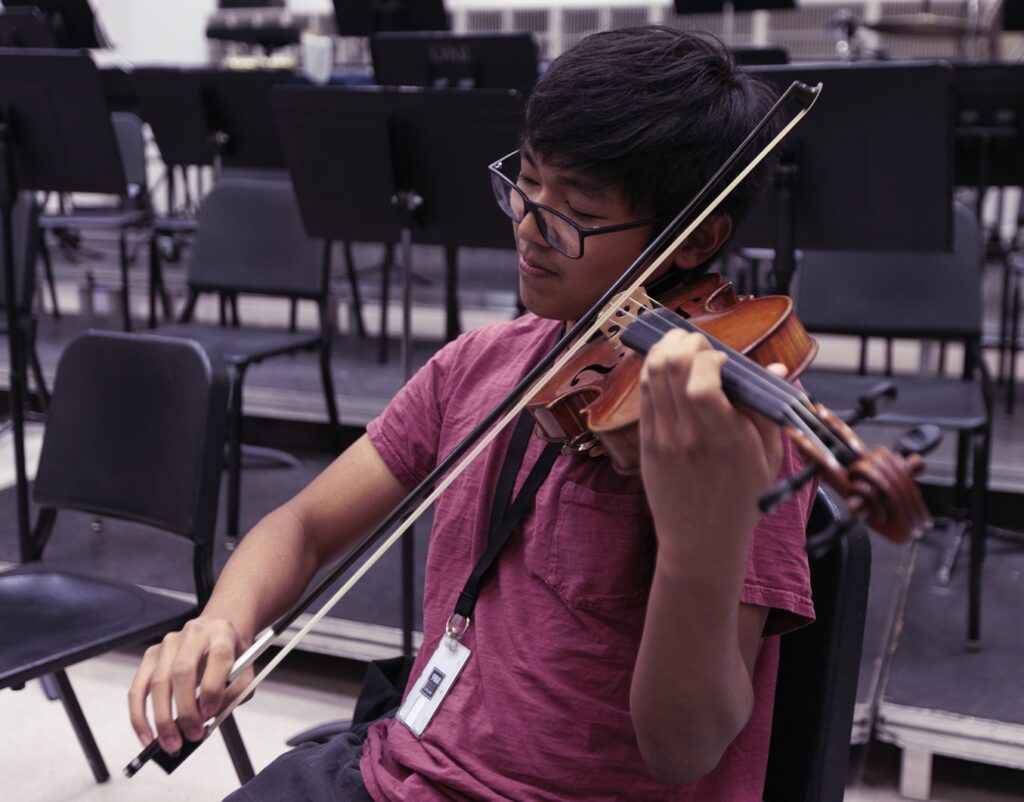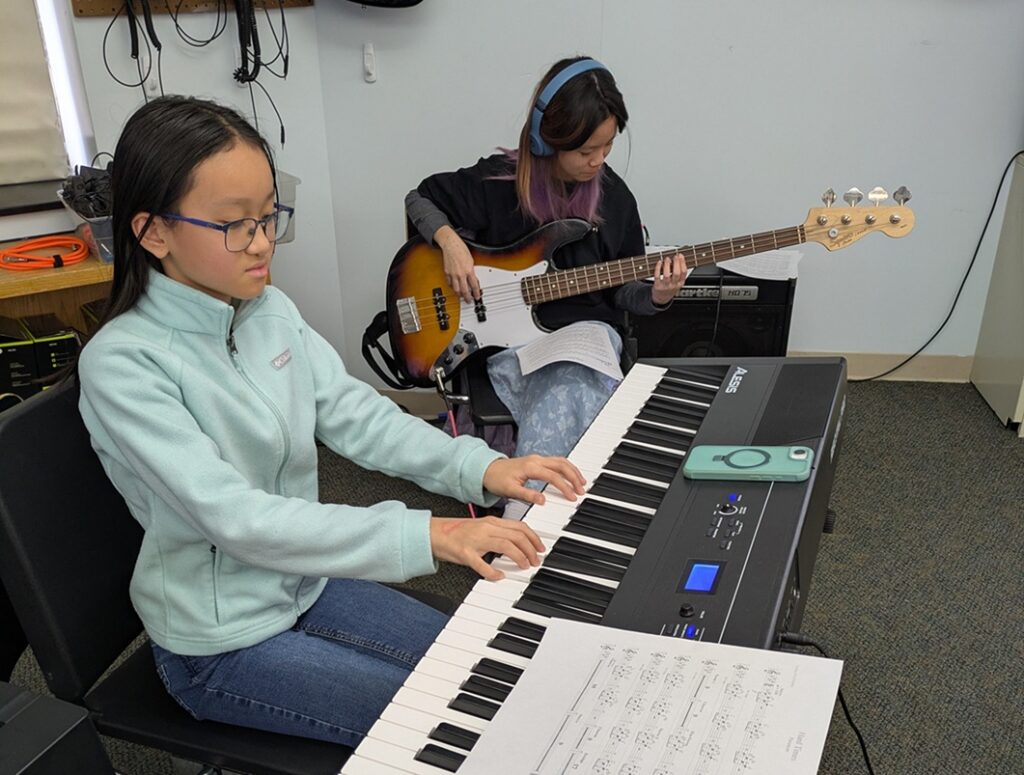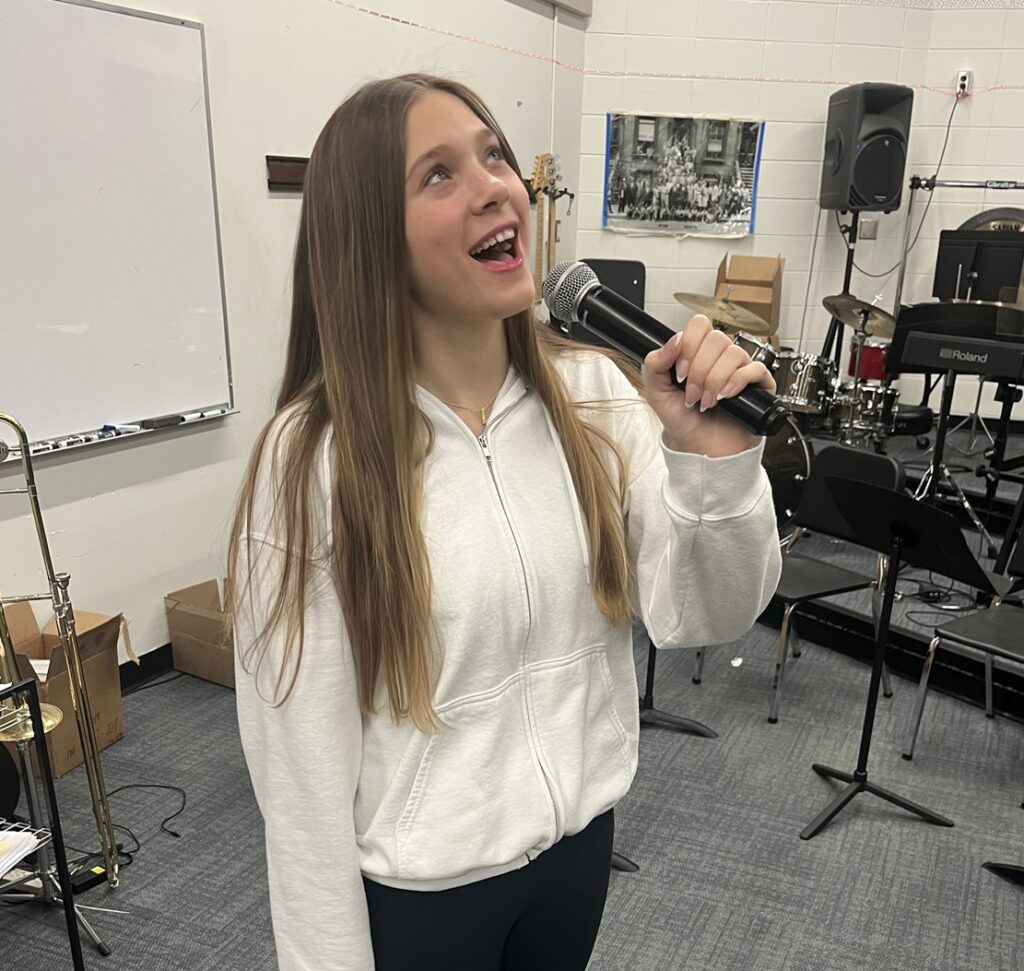Tagged Under:
Even if Your Class Is After School, It’s Still Real
Start small, be consistent and think long-term. The goal is to help music students create good habits and build their own band culture.
You knew it wasn’t ideal when you read the music teacher job posting for an after-school program. The interview confirmed it. The pay was small and the hours were late. The expectations were vague — “just get something going again.”
You tell yourself, I can do this. You imagined a scrappy little group of kids staying after school to make music and maybe fall in love with band the way you did. But first, reality sets in. You’re standing in a room full of stands that won’t stay up and dented instruments. The bell rings, and the building empties. You’re waiting to see who is going to show up.
This is the moment where you think: Why am I even doing this? Is it worth it?
Yes, it is, but not for the reasons you were hoping. You’re not here to rebuild the program you wish existed. You’re here to create something real for the students who are here — with the time, tools and support you actually have.
Let’s talk about how to do that without burning out.

Start Small. Then Go Smaller. Then Start There.
Your instinct might be to go big and prove that this program deserves a school-day slot. Advertise. Recruit. Announce a concert date. Show everyone that band is “back.”
Please don’t do that. If your program is on life support, going big too fast almost always means it collapses. You burn out. Kids vanish. Admin will assume that this is why music was cut in the first place.
Try this instead: one group once a week. On time. Every time.
Maybe it’s just eight students on Tuesdays from 3:15–4:15 p.m. They come, they play, they leave smiling. That’s enough. That’s not a placeholder — that’s your foundation.
You might get push back. “Can’t we meet twice a week?” “Are we doing sectionals?” “When’s the concert?” The pressure might come from inside your own head. You want to prove this music program is worth more. You want to show progress. However, more often than not, the strongest thing you can do is hold the line. Same day. Same time. Every week.
You might even feel a little guilty about it. You’ll start to think, Am I doing enough? Especially when you see other schools holding full-day retreats or taking 45 kids to festival. You may even compare what you’re doing to the program you grew up in.
That’s simply not the phase you’re in right now. Focus on reliability over reach. Teach music the students like. Keep it light, fun and easy to prep. If they ask to play the “Star Wars” theme, let them. If they want to work on a TikTok loop — great. You can teach tone and technique on any song.
I had a group that was obsessed with “Seven Nation Army” one semester. Did it get old? Yes. Did it hold their attention? Also, yes. And that’s what counted. They worked on balance, articulation and dynamics — not because I forced it, but because they actually wanted to sound good.
One kid even arranged a trumpet duet version for fun. (It wasn’t good, but it was theirs. We also only had one trumpet …)
You’re not building a program yet. You’re building a habit. Build that first. Think about growth later.

Make Friends With the People Who Run the Building
There will be a temptation to start advocating right away. You might think, If I can just get 15 minutes with the district office … But the people who will actually keep your program alive aren’t in that office. They’re down the hall.
Talk to your custodians. Let them know when you’re rehearsing. Thank them when they unlock your room or sweep around your stacks of music instead of through it. Ask about their day. Be the teacher who doesn’t just leave music stands scattered across the room every week.
Check in with food service. Ask if there are any leftover snacks. Some of your students will stay late and will be hungry. Other kids just want anything extra, and I’m not against bribing kids with food.
Make sure the office staff knows your rehearsal schedule. They’ll help with late buses, announcements, room keys — and they’ll do it faster if they like you.
If you’re running evening rehearsals, connect with admin or security. Make sure someone knows you’re still in the building. You don’t want to have to finish rehearsal by cell phone lights when all the lights shut off and the doors lock.
You don’t need the school staff to love music or even understand what you are doing. You just need them to trust you. Say thank you and mean it. Bring coffee for them now and then. If they stop by your room, invite them in and let them see what’s happening.
You’ll be amazed at what one office assistant can do when they see your kids perform at a staff meeting. Suddenly your email about bus transportation doesn’t sit at the bottom of their inbox. Your room requests get approved quickly.
Programs don’t grow in isolation. They grow when people want to help. And people want to help other people who do a good job AND make them feel good.

Forget Prestige. Focus on Predictability.
This may not be what you imagined when you signed on. There are no fancy concerts, no festivals, no honor ensembles, maybe not even matching uniforms. But this can still be a program worth the community’s time.
What matters most at this stage is predictability. Same day. Same time. Every week. No surprises.
If you say rehearsal is Tuesday at 3:15 p.m., be there. If you say it ends at 4:15 p.m., end on time — even if you’re dying to run one more section. Show your students (and your admin) that this thing has structure.
They’re already skeptical. You know it. Everyone knows it. The best way to flip the narrative is to be unshakably consistent.
Set expectations clearly. “Here’s when we meet. Here’s what showing up means. Here’s what we’re working toward.”
One year, I made a half-sheet syllabus with a QR code to our calendar and handed it out to every kid and parent who walked through the door. It looked low-budget (because it was) but it worked. No one asked, “Wait, when do we meet again?” after that.

Then, celebrate the small stuff. Play for the school board. Perform a piece at the spring art show. Post a video of your group playing “Hot Cross Buns.” Remind your community what your kids are actually doing.
That same support staff we talked about earlier? Perform for them. Bring your kids to the main office or the custodians’ break room. Give them their own performance. Heck, take requests for the next performance if you can. These moments will give you more traction than any email you can send.
People believe in what they see consistently. Not what they hear might happen “once the program is up and running.”

The Long Game Is the Only Game
People often want to build a legacy. What exactly is a legacy? It’s this: Some of the biggest wins in this kind of job will not happen while you’re there.
You’re not just teaching students — you’re rebuilding access. That kind of change moves slowly. It might take years. And someone else might get the credit. That doesn’t make your work meaningless. It makes it necessary.
Keep records. Save the rosters and the flyers. Build templates you can reuse next semester. Start a Google Drive with materials and notes for the teacher who comes after you whether that’s in five years or five months.
Don’t wait until you’re burned out to do this. Document it while you still care.
There’s a good chance that when this class finally earns a school-day slot, you won’t be the one conducting it. You’ll be the name they mention in passing: “This all started when Mr./Ms. So-and-So brought back after-school band.”
Loop in families when you can. One vocal parent asking, “Why isn’t this during the school day?” is more effective than 10 emails from you.
One time, a parent casually mentioned to a board member at a football game that their daughter’s after-school music group was “the best part of her week.” I found out about it secondhand, but it led to a budget conversation that hadn’t happened in years. And by budget, I mean we received an actual budget for the first time.
You can’t force this, but you can create the kind of experience that makes families want to speak up. Play the long game. It’s the only one that actually works.
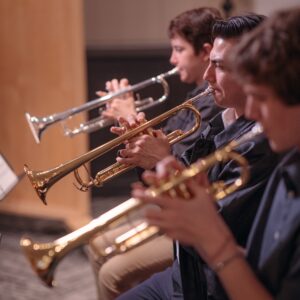
This Isn’t the Program You Wanted. That Doesn’t Mean It Isn’t Worth It.
It’s easy to feel like you’re not really teaching, like you’re babysitting instruments after school and calling it music education. But your students don’t see it that way.
They see that you show up. They hear themselves getting better. They notice when you remember their names and ask about their day. And although it may be a small group, they will build and develop their own culture.
You might feel like you’re just holding things together, but your students feel like they’re part of something.
So, if you’re in a job where the infrastructure isn’t there, and you’re doing your best to build something meaningful anyway — please know that’s not a failure. It’s the work that’s necessary.











